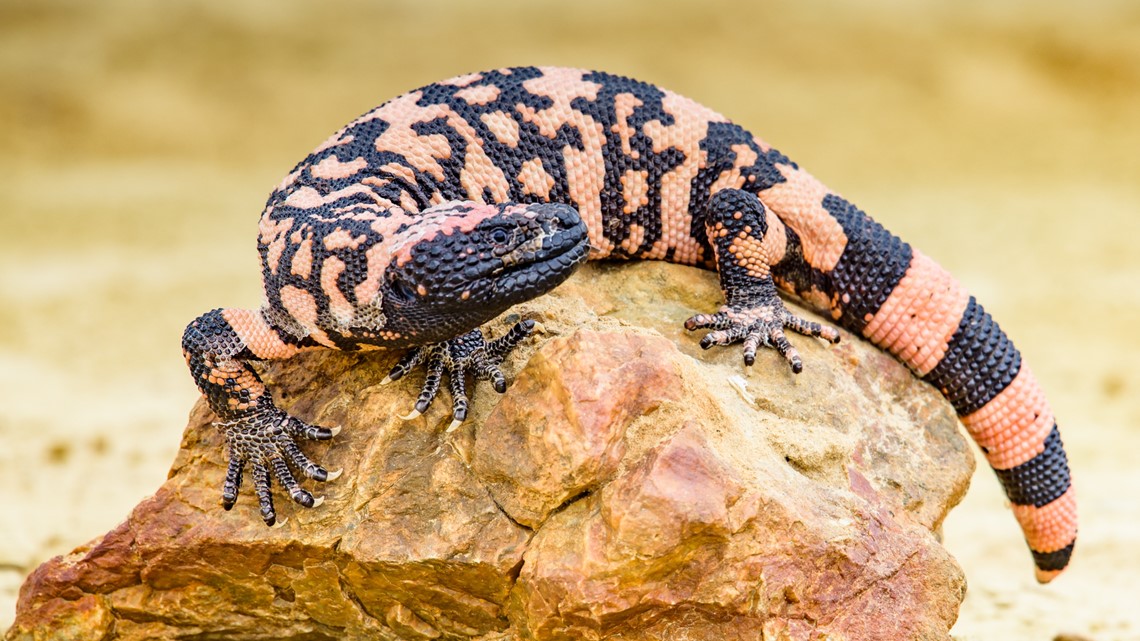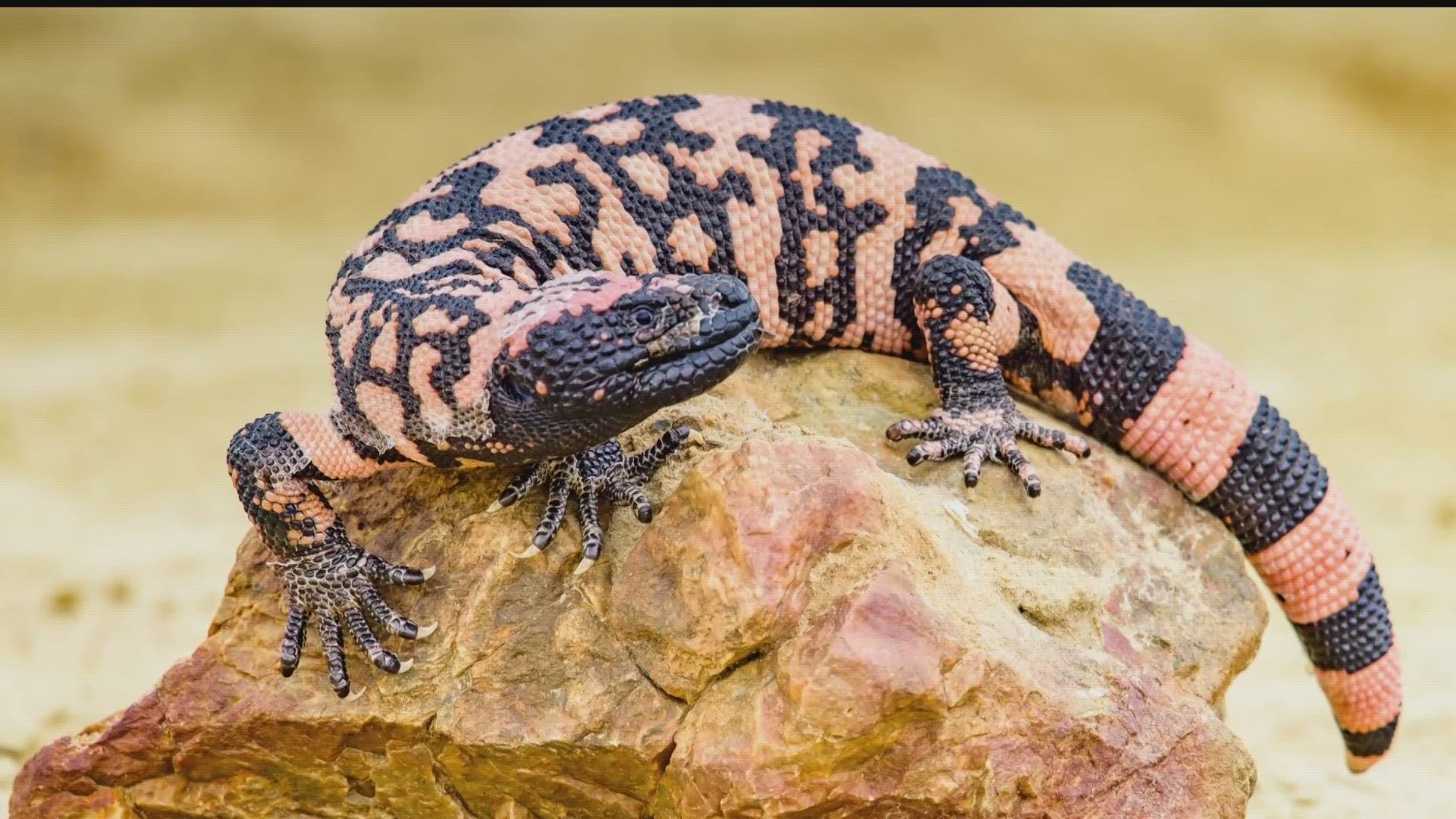LAKEWOOD, Colo. — A 34-year-old Lakewood man died over the weekend after he was bitten by one of his two pet Gila monsters, according to the Lakewood Police Department.
Around 11:45 p.m. on Feb. 12, someone called 911 to report an animal bite. It was later determined that the victim was bitten by a pet Gila monster.
The victim was taken to the hospital and died over the weekend, according to Lakewood Police. The Jefferson County coroner's office said the man's cause of death is pending.
Lakewood Animal Control officers responded to the home the day after the man was bitten, and with the help of Colorado Parks and Wildlife, removed the Gila monsters from the home. CPW said they were taken to an out-of-state wildlife rehabilitation facility. According to Lakewood Police, family members asked for assistance in removing them from the home because they did not know how to care for them.
Gila monsters are illegal to own in Colorado without a permit. It's unclear, in this case, if the man had the proper permits.
CPW said the animals are not legal to own as a pet. CPW issues permits for zoological facilities, but not individuals, to own them.


What is a Gila monster?
According to the San Diego Zoo, Gila monsters are typically solitary and live in desert or semi-desert areas. They are venomous and their bites are painful to humans but rarely cause death, the zoo's website says.
“I have only seen one in a private home in Colorado in 41 years of practice,” said Dr. Kevin Fitzgerald, a veterinarian at VCA Alameda East Veterinary Hospital. “And that was when it was seized at a crack house by the Denver Police Department.”
Fitzgerald said, of the thousands of lizard species, the Gila monster is one of only two that are venomous.
“These are shy nocturnal animals, you know, that come out at night,” Fitzgerald said. “These animals don't use the venom in catching prey. They only use the venom in defense. They have to chew to start to release the venom. Now, they've got a really great grip."
Fitzgerald said this is an incredibly rare case that raises a lot of questions.
“When something like this happens you have to ask yourself, 'How much venom? Was the person immunocompromised? How big is the person? How big is the victim compared to the amount of venom that’s injected? How toxic is this victim?'” Fitzgerald said. “I don't know the circumstances of this bite, and it's a horrible case and our sympathies go out to the people, but this is rare. This doesn't happen in nature. This is a function of captivity.”
SUGGESTED VIDEOS: Latest from 9NEWS
OTHER LAKEWOOD HEADLINES:

